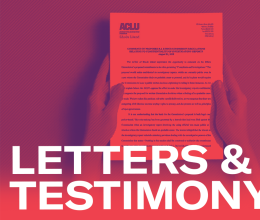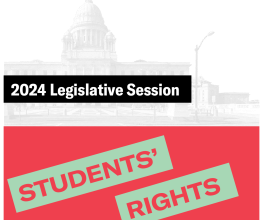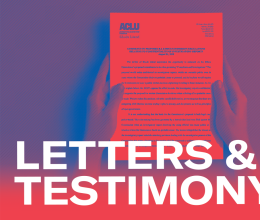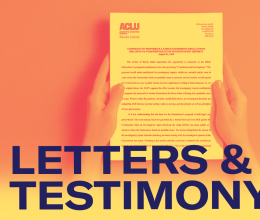The Rhode Island Board of Education today was found in violation of an open government law for the second time in six months — this time for failing to properly respond to a petition by the ACLU of Rhode Island and numerous other organizations seeking a public hearing on the Board’s controversial “high stakes testing” graduation requirement.
Rhode Island Superior Court Judge Luis Matos ruled that the Board violated the Administrative Procedures Act (APA) by not responding in writing to a petition filed last June by seventeen organizations seeking a public hearing on repealing the NECAP graduation requirement. The Board was given 30 days by the Judge to formally respond to the petition in accordance with the APA.
At its meeting on September 9, 2013, Board chair Eva-Marie Mancuso announced that the petition had been denied, but no information other than the 6-5 vote against the petition was provided. In addition to the APA claim, the ACLU lawsuit, filed by volunteer attorney Marc Gursky, alleges that the Board’s discussion of the petition in a closed-door meeting was a violation of the Open Meetings Act. The ACLU has asked the court to find that the meeting violated the OMA and to impose a $5,000 fine against the Board for willfully violating the law. In response, the Judge today ordered the Board to provide him the executive session minutes from that September meeting. He indicated he will rule on the open meetings claim at a later date after reviewing the minutes.
The Board was rebuked by a court last August for seeking to violate the open meetings law on the very same issue of high stakes testing. Shortly after the ACLU filed this lawsuit, it was forced to sue the Board after Mancuso announced that an August Board retreat – which would include a briefing on high stakes testing - would be held behind closed doors. At an emergency hearing on that suit, a Superior Court judge ordered that the briefing be held in public.
ACLU attorney Gursky said: “I am pleased that the Judge recognized the importance of agency compliance with the Administrative Procedures Act. We are hopeful for a similar ruling on our open meetings claim. Whether the Board debated the petition for an hour or for two minutes, the public deserved to hear it.”








